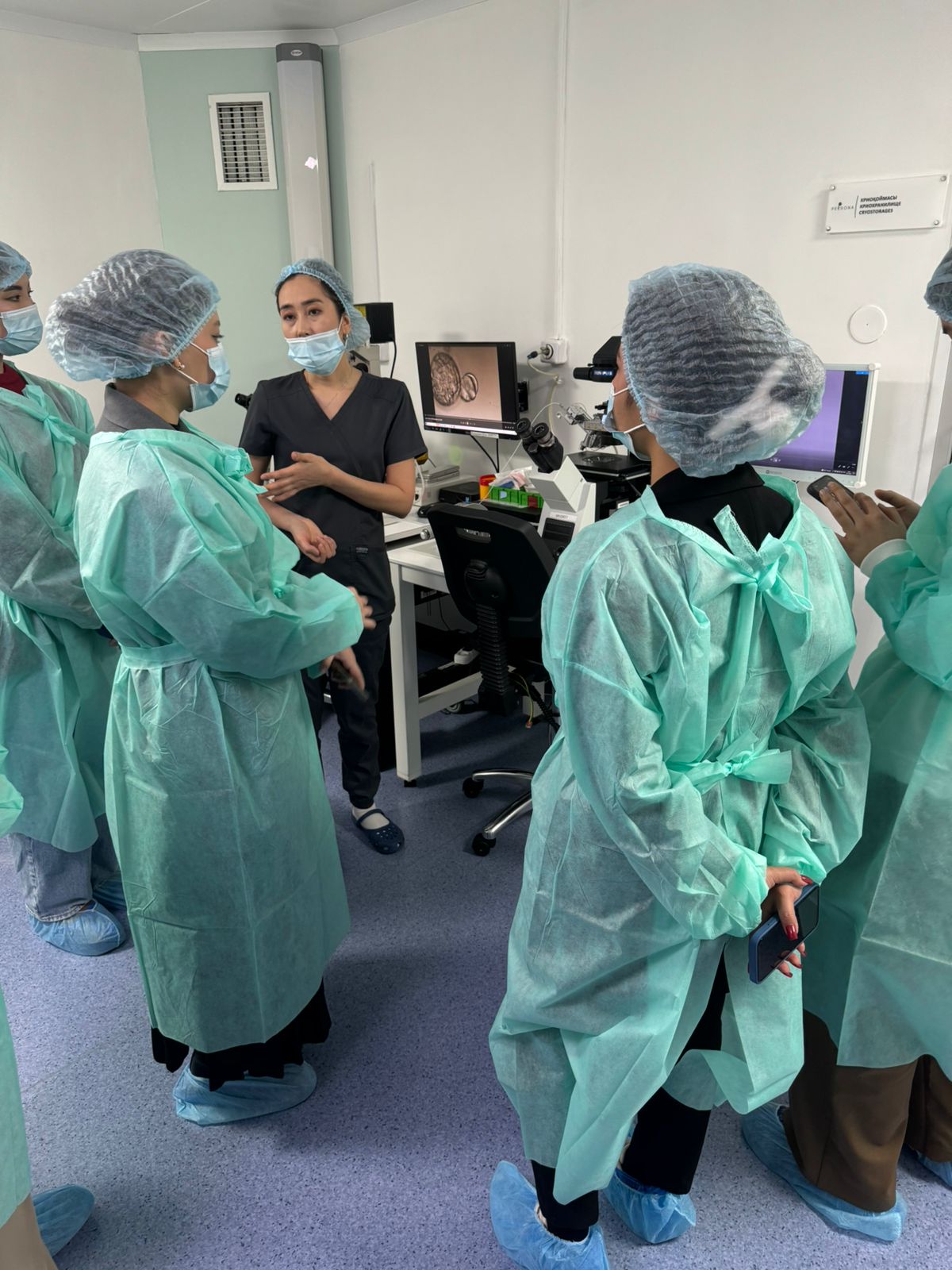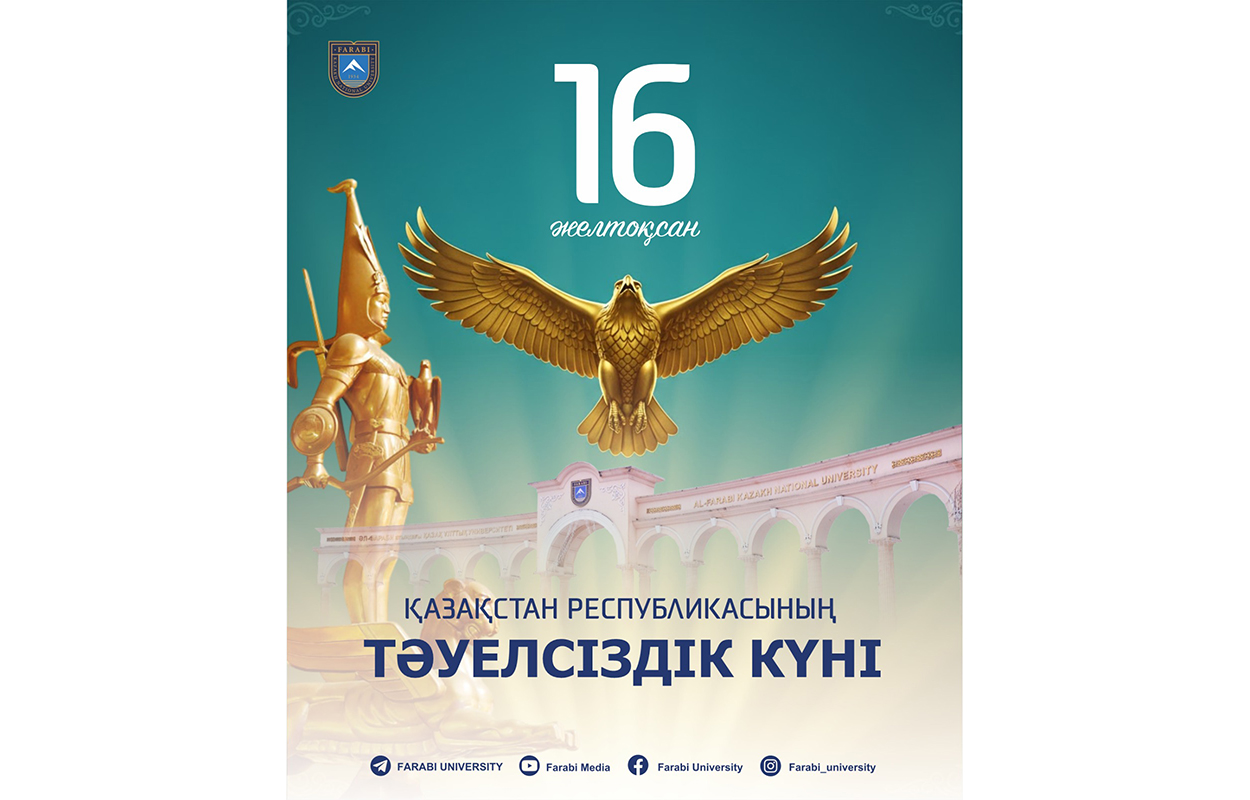- Main
- News
- The Educational Hour Topic: “Reproductive Health of Men and Women in the Reproductive Age”
The Educational Hour Topic: “Reproductive Health of Men and Women in the Reproductive Age”

The Educational Hour Topic: “Reproductive Health of Men and Women in the Reproductive Age”
On December 3, 2024, as part of the celebration of the 90th anniversary of Al-Farabi Kazakh National University, an educational hour was held for undergraduates on the topic “Reproductive Health of Men and Women in the Reproductive Age,” dedicated to the UN Sustainable Development Goals (SDGs) of “Ensuring healthy lives and promoting well-being for all at all ages” (Goal No. 3).
This important event was organized under the guidance of associate professor B. Imankbekova from the Department of Pedagogy and Educational Management, as well as first-year doctoral students in the “Biotechnology” specialty, K.T. Nigmetova. The educational hour took place at the International Clinical Center for Reproductive Medicine “Persona.” Active participation was provided by third and fourth-year undergraduates from the “Biotechnology” specialty at KazNU, along with staff from the respective institutions — totaling 14 participants.
The invited guest was obstetrician-gynecologist and reproductive doctor, MD, PhD Aigerim Temirkhanova.
She presented the main goals and objectives of the session, emphasizing the importance of the discussed topic for the professional and personal development of the participants. In her speech, she also highlighted the importance of applying the knowledge gained in practice and underscored the significance of research in the field related to the topic. During the educational hour, students delved deeper into the topic of reproductive health and understood the importance of its preservation, which includes physical, mental, and social well-being, allowing individuals to fulfill reproductive functions such as conception and childbirth. It encompasses the health of reproductive organs, the hormonal system, sexual behavior, as well as the capacity for healthy pregnancy and childbirth. Preventive measures for maintaining reproductive health include regular medical check-ups, proper nutrition, physical activity, avoiding harmful habits (such as smoking and alcohol), reducing stress, and timely treatment of illnesses.
In conclusion, the importance of educating students about the reproductive system and ART (assisted reproductive technologies) was emphasized, playing a key role in their future conscious attitude towards their health and making important decisions about family and childbearing. Including information about the possibilities of assisted reproductive technologies in the curriculum helps students not only understand modern medical achievements but also recognize the ethical and social aspects of these methods. This knowledge contributes to developing a responsible approach to reproductive health and preventing diseases while preparing future specialists who will possess deep knowledge and readiness to solve critical tasks in the field of medicine and healthcare.
After the lecture, doctoral student Nigmetova Kamshat spoke about the center that treats couples with fertility issues. An excursion around the clinic and the embryology laboratory was conducted. This laboratory conducts all modern assisted reproductive technologies, such as gamete fertilization, embryo cultivation in Time-lapse incubators with artificial intelligence, cryopreservation of gametes and embryos, embryo transfer into the uterine cavity, and PGD (preimplantation genetic diagnosis of embryos).
The educational hours helped master’s students recognize the significance of their profession within the framework of the UN Sustainable Development Program and fostered a sense of pride in their specialty.


